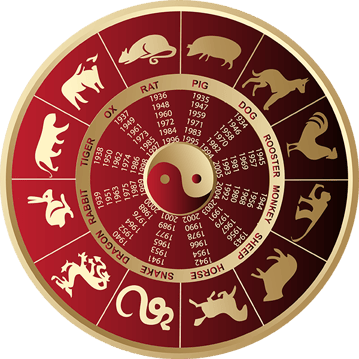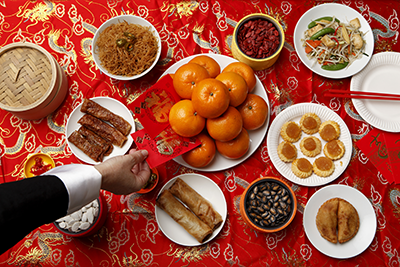Lunar New Year is more commonly known as Chinese New Year, or the Spring Festival. As one of the largest holidays celebrated in China, families will clean their houses to welcome new luck, while gathering for meals & celebrations!
Although this event is recognized as Chinese New Year, there are many other Asian countries and Chinatown neighborhoods that celebrate with traditional red decorations, firecrackers, colorful parades and dragon dances.

Lunar New Year starts on February 1, 2022 and ends on January 21, 2023. The festival is celebrated for 15 days, and this year is the Year of the Tiger.
Year of the Tiger
The Lunar Calendar is represented by 12 zodiac animals; the Chinese believe the animal ruling the year in which a person was born has a deep influence on personality.
The third animal of the zodiac, the Tiger, is known as the king of all beasts, and represents powerful energy, royalty, generosity, and unpredictability. Most people born under the sign of the Tiger are strong, powerful, brave, and independent.
Customs & Traditions
This festival is full of regional customs and traditions, and it shares a common goal of ridding all negativity and bad luck from the former year, while bringing forward luck and prosperity for the new year.
One custom is to gather your extended family together on New Year’s Eve and eat certain symbolic foods. Everything is important about these meals, not just the food itself but the preparation, the way it is served and eaten, with the main purpose of bringing luck into the new year.
You can help celebrate by ordering these foods from your local Chinese restaurant:
 Glutinous Rice Cake: Symbolizes promotion – the Chinese word for rice cake translates to “getting higher year after year.”
Glutinous Rice Cake: Symbolizes promotion – the Chinese word for rice cake translates to “getting higher year after year.”- Tangerines & Oranges: Symbolize fullness and wealth because of the golden color and round shape. The Chinese translation sounds the same as the Chinese for “success.”
- Sweet Rice Balls: To keep the family together.
- Chinese Dumplings: Symbolize wealth. Usually the more you eat during celebrations, the more money you can make in the New Year.
- Spring Rolls: Also symbolize wealth because the fried rolls look like gold bars.
- Longevity Noodles: Symbolize happiness and longevity.
- Fish: Symbolizes prosperity and traditionally should be eaten last.
Another tradition is the red envelope exchange, which is where older adults give children a small red envelope of money to symbolize good wishes and luck for the new year. This custom also spreads from bosses to employees, as a special bonus.
Thousands of years ago, fireworks were invented by the Chinese. Red fireworks represent fire, which drives bad luck away. This usually gets coupled with wearing new clothes, which can bring fortune and health, and the hanging of red lanterns, which are also there to rid of bad luck.
If you’d like to also partake in the tradition of wearing something new, I recommend getting it in red! Red is the favorite Chinese color as it represents happiness, luck, success, good fortune, and vitality.
How else can you participate?
Beyond enjoying a Lunar New Year meal in your new clothes, here are a few suggestions for partaking in the festivities:
- Do a house cleaning on January 26th to bid farewell to the old year, and welcome in the New Year and all its luck.
- Find articles about the Lunar New Year/Chinese New Year and educate yourself further or someone close to you about the event.
- There are lots of Lion & Dragon Dances online—watch a couple!
- Wish an Asian friend Happy New Year!
- Print off templates of lanterns and celebrate at home
Wishing you a happy New Year and a lucky and mighty year of the Tiger!

.png)
.png)


.png)

.png)
.png)


.png)
1200.png?height=630&name=chinese%20new%20year-02%20(1)1200.png)

 Glutinous Rice Cake: Symbolizes promotion – the Chinese word for rice cake translates to “getting higher year after year.”
Glutinous Rice Cake: Symbolizes promotion – the Chinese word for rice cake translates to “getting higher year after year.”